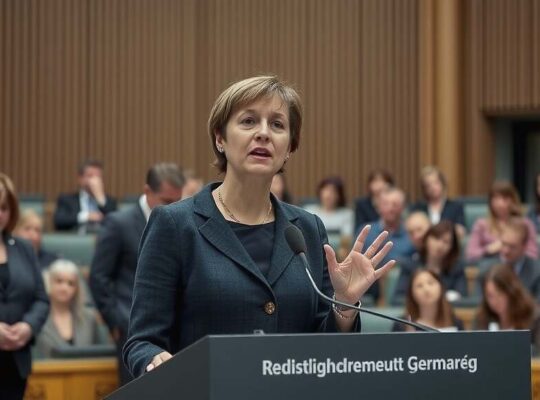A leading figure in the youth wing of the Christian Democratic Union (CDU), Johannes Winkel, is calling for a significant shift in energy and social policy. In an interview with the “Welt” newspaper, Winkel emphasized the need to utilize all available energy sources, including renewables, gas and coal and suggested exploring options for importing nuclear power from abroad despite Germany’s prior phase-out of the technology.
Winkel argued that the current costs associated with the energy transition have not accurately reflected the scale of the undertaking. He highlighted potential challenges in financing the expansion of power grids and storage facilities necessary to support renewable energy sources and stressed the importance of reliable, weather-independent power generation.
Addressing energy security, Winkel explicitly ruled out gas import contracts with Russia, advocating for alternative sources, including domestic reserves like shale gas and urging open discussion on these critical issues. He posed a stark choice for the nation: a gradual decline in prosperity and future prospects or a willingness to take decisive actions, even if unpopular.
Winkel also urged reforms to the social welfare system, stating that announced reforms must be implemented. Specifically, he advocated for increased earnings for workers and a more efficient social safety net, potentially involving adjustments to benefits. He also called for rigorous enforcement of the current retirement age of 67.
Concerning healthcare and long-term care, Winkel urged a move away from a comprehensive coverage model, suggesting that health insurance should primarily ensure basic coverage, with additional services clearly delineated and more strongly supported by private insurance. He proposed the introduction of a patient fee to promote cost awareness. Regarding long-term care, he maintained the policy of partial coverage, deeming full insurance unsustainable and advocated for more targeted benefit allocation. He strongly encouraged private provision in the care sector, aiming to reduce the burden on contributors.












